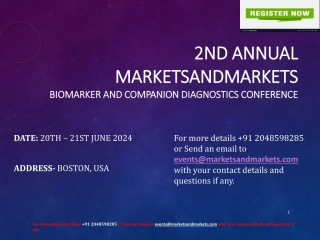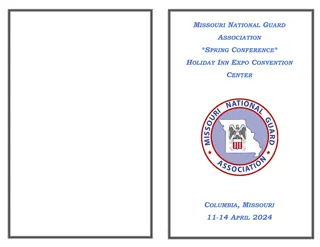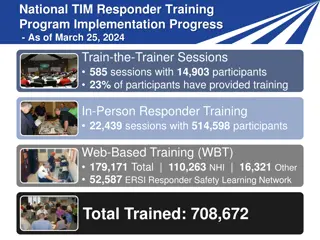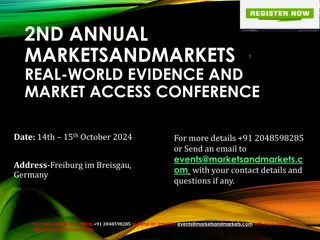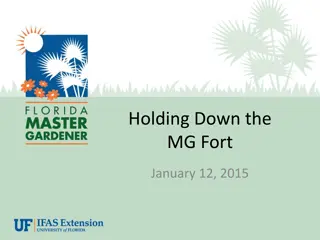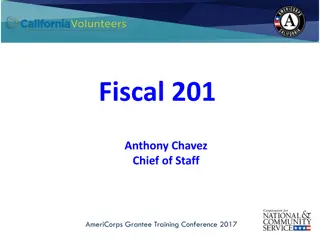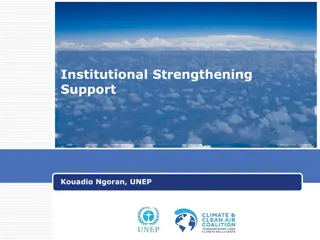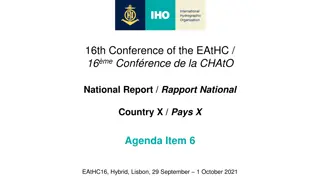2024 NADE NATIONAL TRAINING CONFERENCE
This presentation by J. Scott Pritchard covers respiratory disorders, including COPD, cystic fibrosis, and more. Learn about symptoms, testing, and management of lung conditions. Gain insights on obstructive vs. restrictive lung diseases and tools for assessing severity. Explore the complexities of chronic lung disorders and the impact on lung function.
Download Presentation

Please find below an Image/Link to download the presentation.
The content on the website is provided AS IS for your information and personal use only. It may not be sold, licensed, or shared on other websites without obtaining consent from the author.If you encounter any issues during the download, it is possible that the publisher has removed the file from their server.
You are allowed to download the files provided on this website for personal or commercial use, subject to the condition that they are used lawfully. All files are the property of their respective owners.
The content on the website is provided AS IS for your information and personal use only. It may not be sold, licensed, or shared on other websites without obtaining consent from the author.
E N D
Presentation Transcript
2024 NADE NATIONAL TRAINING CONFERENCE EVERYTHING YOU WANTED TO KNOW ABOUT PFTS (BUT WERE AFRAID TO ASK) A PRESENTATION BY J. SCOTT PRITCHARD, DO
OBJECTIVES What are Respiratory Disorders? Differentiate between Obstructive vs. Restrictive Lung disease Cystic Fibrosis Bronchiectasis Pulmonary Function Testing Other tools to assess severity and associated functional impact
RESPIRATORY DISORDERS LISTING 3.00 Any lung disorder that interferes with moving air out (obstruction) or moving air in(restriction) or diffusion (gas exchange) across the cell membranes in the lungs.
Chronic Obstructive Pulmonary Disease (COPD) Chronic bronchitis, emphysema Pulmonary Fibrosis Pneumoconiosis coal worker s (black lung), asbestosis, silo filler's lung, talcosis, silicosis (grinder s disease), etc. Cystic Fibrosis Bronchiectasis Pulmonary Hypertension Respiratory Failure Lung transplantation
Symptoms Coughing Chest pain Dyspnea shortness of breath. At rest or with exertion Wheezing Sputum production Hemoptysis (coughing up blood) Use of accessory muscles Tachypnea increase rate of breathing.
Cystic Fibrosis - Hereditary autosome recessive 39000 in US (1.17%) - CFTR gene mutation (Cystic Fibrosis Transmembrane conductance regulator) - Affects mucus, sweat and digestive enzymes (exocrine glands) - Thick mucus in the lungs/infection, poor growth, fatty stools, clubbing of the digits and diabetes - Listing 3.04 Separate tables, listings for growth and DM(DC)
Spirometry FEV1 the volume of air exhaled during the first second of the forced expiratory maneuver. Must last six seconds or 1 second on a plateaued curve FVC - the total volume of air exhaled during the forced expiratory maneuver FEV1/FVC ratio of the FEV1/FVC in percentage. Single breath uncorrected DLCO (diffusion in liters of carbon monoxide) IVC/FVC ratio 85% or greater
Requirements Height w/shoes or wing-span for severe kyphoscoliosis Weight and Gender Comment upon Effort and Cooperation with testing. Legible tracings of each forced expiratory maneuver - three pre-bronchodilator tracings (flow volume loops) - three post-bronchodilator tracings (flow volume loops) Use the best FEV1 or FVC even if not from the same tracing
Period of Stability Within two-weeks after a change in medication for a respiratory disorder Within 30 days of completion for treatment of a LRI (lower respiratory tract infection) Within 30 days of treatment for an exacerbation of a chronic respiratory disorder Hospitalized or within 30 days of a hospital discharge for myocardial infarction
Oximetry 6 MWT use the lowest recorded SaO2 on room air (RA) Listing 3.02 C3 - Table V Test site altitude (feet above sea level) SpO2less than or equal to Less than 3,000 87 percent 3,000 through 6,000 85 percent Over 6,000 83 percent
A 60-year-old clt presented with progressive shortness of breath and chronic non-productive cough. The clt reported a 45-year history of smoking 2 packs of cigarettes per day (90 pack years). The clt reported mMRC 3 dyspnea. SaO2 on RA 92%. CXR hyperinflation with flattened diaphragms. No lesion or consolidations. Breath sounds diminished in the bases to auscultation. Minimal expiratory wheezing. The clt able to speak in clear sentences











